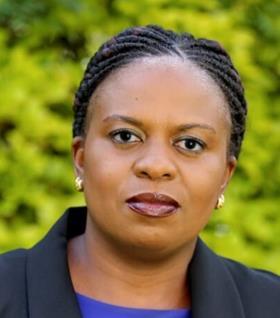PRI board
Chair

Martin Skancke
Independent
Term limit: 2020
Directors elected by asset owners

Angela Emslie
HESTA (Australia)
Term limit: 2021

Eva Halvarsson
AP2 (Sweden)
Term limit: 2022

Hiromichi Mizuno
GPIF (Japan)
Term limit: 2022

Renosi Mokate
GEPF (South Africa)
Term limit: 2020

Laetitia Tankwe
Ircantec (France)
Term limit: 2021

Xander den Uyl
ABP (Netherlands)
Term limit: 2021

Sharon Hendricks
CalSTRS (USA)
Term limit: 2021
Directors elected by non asset owners

Wendy Cromwell
Wellington (USA)
Term limit: 2021

Tycho Sneyers
LGT (Switzerland)
Term limit: 2020

Michael Jantzi
Sustainalytics (Netherlands)
Term limit: 2022
Permanent UN advisors

Sanda Ojiambo
UN Global Compact

Eric Usher
UNEP FI
Introduction from the Chair
Martin Skancke
The board remains focused on realising the ambitions of the PRI’s Blueprint for responsible investment and providing value to all signatories.
The board’s discussions are guided by the nine Blueprint priorities. The board has a high-level agenda for the 2019-21 strategy cycle that has scheduled discussions of all the Blueprint priorities, to ensure that the board systematically discusses and reviews each priority in depth. Over the past year the board discussed in depth four of the Blueprint priorities: Foster a community of active owners; Challenge barriers to a sustainable financial system; Drive meaningful data throughout markets; and Real-world impact aligned with the Sustainable Development Goals (SDGs). Also, at the regular June meeting the Executive presented an overview of progress against the nine priorities.
A lot of our time was spent discussing two topics at a series of meetings:
- Reporting Framework reform. The reform is a critical project for the PRI and has been discussed at every board meeting during the year. We have discussed the objectives and design and received updates on progress. Signatories generally welcome the opportunity to learn and benchmark themselves via the framework, as well as the external accountability that it provides. However, the framework had grown outdated and signatories felt that they put more into reporting than they received back. This is a complex project, with high expectations and at present is on schedule.
- 2021-24 PRI strategy. Building on the results of the signatory survey and regional focus groups the board has been setting parameters for the next strategy and giving guidance to the Executive. The context for this strategy is the increasing diversity of the signatory base, the increasing demand for accountability of the PRI and the signatory base; and the growing signatory base, with the PRI having to deliver at scale. The strategy conservations are still ongoing, and the SGM will be an opportunity for the PRI to start consulting with signatories on the strategy.
Of course, this year the organisation has had to reflect on the potential impact of Covid-19 on how the PRI works with its signatories and potential implications for the PRI’s funding and operations. We have witnessed an increase in signatory and stakeholder engagement with the work of the PRI. Sustainability and the interconnectedness of ESG issues is bearing out. In particular human capital and social issues have risen up the agenda and the PRI is seeking to respond to this challenge.
One director departed the board during the year, Peter Webster (Vigeo Eiris). I would like to thank Peter for his valuable input and dedication over the past six years. The PRI hopes to continue to benefit from the expertise of all former directors.
This year the PRI welcomed one newly elected and two re-elected directors, all of whom will bring their perspectives, skills and knowledge to the board:
- Eva Halvarsson, CEO, AP2 (re-elected for a second term in January 2020)
- Michael Jantzi, CEO, Sustainalytics (newly elected in January 2020)
- Hiro Mizuno, Investment committee member, Tokyo University (re-elected for a second term in January 2020)
In the 2020 PRI Board annual elections there is one asset owner position and one investment manager position up for election. Skills, experience and diversity are critical to a high performing Board. The board is encouraging all candidates with leadership and governance experience. Geographical diversity is one critical component of effective debate and decision-making. The PRI is a global organisation, and aims for global representation on its Board, particularly within the asset owner positions. This year the board, having identified a risk of a lack of emerging markets representation on the board, decided to include an ‘exclusivity period’ in the elections timetable for nominations from candidates from asset owner signatories in emerging markets. Candidates will also be asked to elaborate in their statements on their demonstrated leadership within responsible investment, ESG expertise and other experience relevant to the long-term success of the PRI.
Signatory participation in the signatory voting in October and November is important. The PRI is a membership organisation and to continue to thrive we need to engage signatories with relevant work and activities, and signatories need to keep engaged and active in our governance. The PRI will be asking signatories to elect two directors, vote to confirm my appointment for another three year term, approve the SGM minutes, and vote for the PRI Annual Report and Accounts.
I encourage you to read the full PRI Board report . The report is an overview of the work undertaken by the board over the past year, how we work together and with the Executive. The report includes our focus on organisational purpose; the leadership of the Board; integrity measures; decision-making processes, risks and controls; actions to improve our effectiveness; how we are thinking about Board diversity and communicating this to signatories; and our efforts to be open and accountable to signatories.
If you would like to discuss any aspect of the PRI’s governance with me, please feel free to email me at [email protected].
Martin Skancke
Signatory General Meeting
The 2020 Signatory General Meeting (SGM) will be virtual. To accommodate the PRI’s global signatory base there will be two SGMs held on 21 October 2020, 08:00-09:30 BST and 17:00-18:30 BST.
Agenda
- PRI Board report | Martin Skancke, Chair, PRI Board
- Management and financial report | Fiona Reynolds, CEO, PRI
- 2021-24 strategy consultation | Martin Skancke, Chair, PRI Board and Fiona Reynolds, CEO, PRI
- Q&A | Martin Skancke, Chair and Fiona Reynolds, CEO, PRI
- Signatory voting and PRI board director elections | Martin Skancke, Chair, PRI Board
The PRI wants to encourage an active dialogue between signatories and the board. The SGM, the annual general meeting of signatories, is an important forum for communication between the board and signatories. The SGM is an opportunity for the board to report to signatories on the PRI’s strategy and its implementation; the work undertaken by the board and its committees; forthcoming board elections; formal consultations and any other business.
The PRI sought input from signatories on the SGM draft agenda in July 2020 and invited signatories to contribute agenda items and resolutions to be put to a vote. No agenda items or resolutions were received by the deadline of 21 August.
We have allocated time in the meeting for signatory questions. Signatories are asked to submit questions in advance, particularly detailed financial or legal questions, by email to [email protected] by 14 October. Alternatively, signatories can post questions live during the meeting.
More information on the virtual SGM, how to participate and submit questions in advance.


